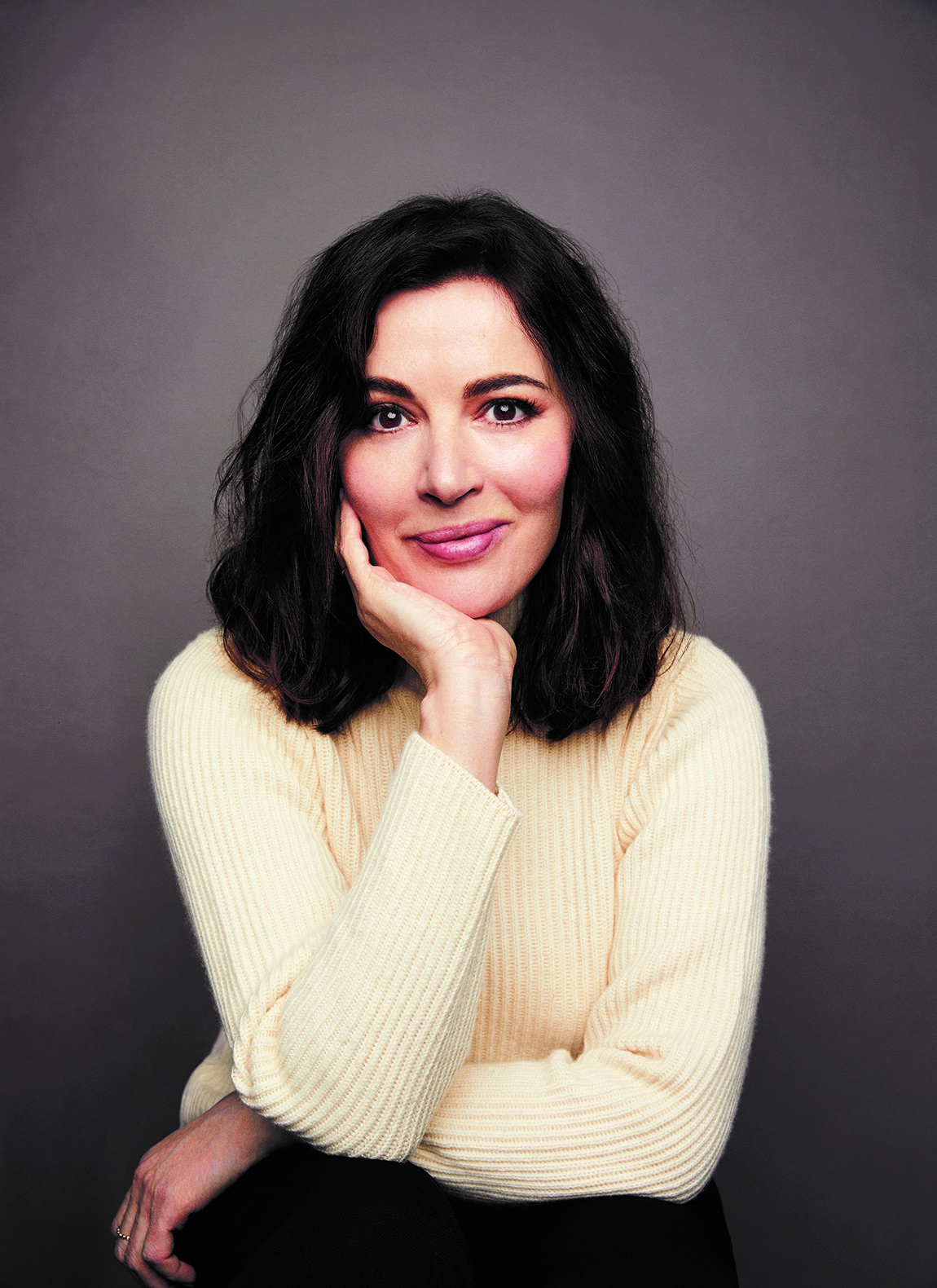“My friends always joke that someone comes in, and they leave with something wrapped up in tin foil,” Lawson told The AJN when she was in Australia in 2018 for MasterChef.
Since her very first book, published in 1998, Lawson has published a dozen more, spent time in front of the camera on several television cooking series and has her own line of cookware.
Yet, she didn’t start her career in food. Rather, she spent time working in department stores in London before reviewing books, and only then moved on to restaurants.
It was after a stint as a freelance journalist that Lawson published How to Eat. It was an instant success.
She was an unqualified home cook, yet she published a pretty influential guide to eating. So why was it so popular?
Because Lawson succeeded in publishing a recipe book that was countercultural – penned as the antidote to the complicated, intimidating recipes that were being released by professional chefs. She believed, and still does, that cooking should be simple, fast and fun, and personalised to the cook’s flavour preferences. Quite simply, it was about the pleasure of food.
Lawson has travelled the world – literally and figuratively though our televisions – spruiking this idea. And never before has it been more relevant.
People are busy nowadays, especially the younger generation, juggling dual-income households with the demands of life, whether that includes kids or not. We want good, wholesome, healthy food but we don’t want to spend hours in the kitchen making it.
Which is why Lawson appeals to so many people, and why her upcoming appearance in Australia will resonate with so many.
Lawson will be live in conversation with Matt Preston as she shares the rhythms and rituals of her own kitchen. She’ll explore how cooking is a personal, intuitive and connecting process, and how one meal can so easily lead to another. It’s there, perhaps, that her Jewish heritage had some influence.
While she told The AJN that she wasn’t brought up with the laws of kashrut, they were very much “about the food”.
“They were totally, culturally, Jewish – from cooking too much, to feeding anyone the moment they walk through the door, and giving them things to take home,” she shared.
“Every recipe I’ve cooked over and over again in my own kitchen, and each time I do it I can make it simpler. That’s my connection with people. I cook at home in the same way as my readers or my viewers do at home.”
Lawson’s family lived in London for generations, yet as she told BBC’s Who Do You Think You Are? because her family are Jewish, she must have roots somewhere else around the world. While on the program, Lawson discovered that an unconfirmed family rumour concerning her grandfather was true. Felix Salmon, who died when Lawson was young, was one of the soldiers who liberated Bergen Belsen. It was also revealed that the reason her family moved to England from Amsterdam is that one of her ancestors was actually on the run, having been convicted of stealing and fencing lottery tickets.
And despite originally believing her heritage was Iberian Sephardi, Lawson found out that she was very much Ashkenazi. Perhaps that’s where her mother’s braised chicken recipe comes in, which Lawson published in cookbook number eight, Kitchen.
“That idea of chicken … I think it is essentially a Jewish thing,” she said, continuing to explain that food and Judaism seem to very much go hand in hand.
“I think that if you are Jewish, you feel that food as sustenance is important; food as a way of forging bonds with people and a sense of family is important; but we also cannot help but to think of food symbolically. We don’t have to be taught that. It’s not about any religious thing – it’s in how we are,” she said.
It was this notion of food, home and company that Lawson said compelled her to write How To Eat, because, she explained, she felt that home cooking was being taken over, and as a way to pay tribute to her family, particularly those whom she had lost – her mother and her sister.
How To Eat was written as a young mother who was trying to cook while juggling two young children. The recipes were interwoven with stories about her mother and sister, and the times they shared in the kitchen or around the dinner table.
The queen of the kitchen explains that her secret is authenticity, cooking as she would for her own friends and family.
“Everyone might like looking at beautiful images on Instagram, but it doesn’t make people feel invited to cook,” she told Broadsheet. “What makes people feel invited to cook is seeing how it’s done in a real way, and it being more of a conversation. I have a lot of words in my books because it has to be a conversation.
“Every recipe I’ve cooked over and over again in my own kitchen, and each time I do it, I can make it simpler,” she said. “That’s my connection with people. I cook at home in the same way as my readers or my viewers do at home.”
An evening with Nigella Lawson is on May 19 at Hamer Hall in Melbourne – artscentremelbourne.com.au – and May 21 at State Theatre in Sydney – statetheatre.com.au


comments